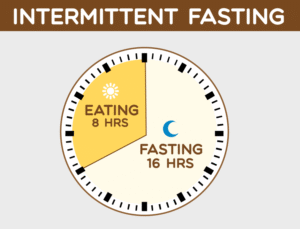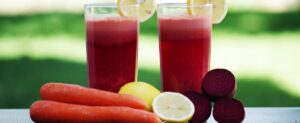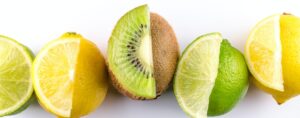Why Drinks Matter
Food dominates our lives, from traditional cooking and satvik menus to social media’s obsession with stunning presentations and “food porn.” While this fascination can verge on addictive, it has also sparked a movement toward mindful eating and wellness-focused choices. For naturopaths, ‘food is medicine’—a cornerstone of this completely drugless system of healing.
But today, let’s shift the focus from food to drinks. For the sake of this article, a drink is everything except plain water.
How many different types of drinks do you consume daily? Most people average 2-3 cups or glasses, with tea, coffee, herbal teas, soda, buttermilk and alcohol (yup, it has become daily consumption now) topping the list. A handful consume fresh juices. Drinks consumed daily are as critical for our health as the food we eat. Hence it is important to get deliberate about them and check whether your drinks are nourishing you—or creating imbalance?
By definition, food is anything the body can convert into energy, and this process requires your digestive system to work. From saliva in your mouth to enzymes in your stomach, every part of the digestive machinery gets activated. While drinks bypass chewing and hence saliva action (although naturopathy emphasizes sipping mindfully), they still engage the digestive system and require absorption and assimilation.
This is why, in naturopathy, a true fast is a “water-only fast”—the only way to give the digestive system complete rest. Consuming other drinks, like juices, lightens the digestive workload but does’t eliminate it. So, whether you drink 3-4 beverages daily or more, they impact your health just as much as the solid food you eat.
The Usual Drinks
Tea and Coffee
“One burns the stomach and eyes; the other, the nervous system, creating anxiety.” Can you guess which is tea and which is coffee? This statement might sound extreme, especially for habitual tea or coffee drinkers. But let’s delve deeper.
Tea’s Impact: In 2018, an Ayurvedic doctor advised me to quit tea. She attributed my anemia, low Vitamin B12, and other deficiencies to malabsorption caused by tea. Despite consuming 4-5 cups daily, I dismissed the warning. Tea was my go-to for focus and stress relief—stronger, less milk, more brewed. In hindsight, it was classic addiction.Tea primarily affects the digestive system. It can burn the stomach lining, cause acid reflux, and, over time, lead to nutrient malabsorption. If you every try to have tea empty stomach after a naturopathy detox, you will feel its acidity. It immediately hits your stomach, eyes, and head.
Coffee, the Neurological Whip: What tea was to me, coffee is to others. Most habitual coffee drinkers cherish it. Some have a ritual around it, making sure it is made perfect in taste, texture and consistency. Coffee impacts the nervous system. While it energizes, overuse can disrupt sleep, cause jitters, and lead to chronic fatigue. Someone once gave me the example of a horse pulling a large load. The horse is tired, fatigued and needs rest. Instead, it keeps getting whipped to continue moving.
Your nervous system is that tired horse and coffee its whip. Eventually, it collapses. Post-detox, coffee’s effects on the nerves and sleep cycles become very evident. You will experience it more if consumed after 4 PM or by those over 40.
Common ground: Both tea and coffee are acidic, habit-forming, and dehydrating. While liquids, they don’t hydrate. Instead often trigger headaches, especially after prolonged consumption. If you are healthy, occasional, small amounts—never on an empty stomach—are generally tolerable. But regular use exacerbates health issues like acidity, poor sleep, and chronic fatigue. Black versions are sometimes better than milky ones, but they remain habit-forming and addictive. Remember, the body feels temporarily better consuming addictive substances, slowly wanting more potency to get the same effect. Treat tea and coffee like alcohol: their potency, quantity, and regularity determine their impact. Use them sparingly, and always prioritize hydration with pure water to prevent long-term health issues.
For those reversing disease or battling acidity and sleep disturbances, quitting tea and coffee is crucial. Sometimes we crave a hot drink after a big meal. This happens when the digestive fire is not strong enough to digest the meal. Rather than tea, drink hot (not lukewarm) water or even honey + lemon + a little rock salt in hot water.
The Truth about Alcohol
My guide, now 93 years old, often says alcohol was originally created for medicinal purposes. Whether this is historically accurate or not, I do recall childhood memories of being given a teaspoon of brandy on cold winter nights to ease a runny nose or cold. It left me feeling warm and fuzzy.
Today, as a naturopath, I view alcohol through the lens of pH balance and acidity. Regardless of the type—wine, beer, or rum—all alcoholic beverages are products of fermentation, a naturally acidic process. This is why fermented foods, without additives, often have a slightly sour taste.
Alcohol, much like tea and coffee, increases acidity in the body. From a naturopathy perspective, an acidic environment is where diseases originate and thrive. If your goal is to eliminate disease and promote healing, alcohol consumption—irrespective of type, quantity, or frequency—is a definite NO.
Another concern with alcohol is its direct absorption through the stomach lining. This rapid absorption can disrupt the stomach’s natural processes, contribute to metabolic diseases, and cause significant damage to the liver, the stomach’s “friendly neighbor.”
A recent article titled, “What Happens To Your Body When You Stop Drinking During The Week (bustle.com)”, is worth reading. To quote:
“Even for those who don’t get hungover or feel any lasting side effects, there’s still a recovery period the body has to go through. And it’s worth knowing about it. Taking a break from alcohol can help decrease inflammation, normalise electrolyte balance, and give your body a chance to regenerate, from the damage of drinking.”
Bustle.com
I have spent considerable time over the last 2 years listening to female clients with menstrual difficulties and peri-menopausal issues. Everyone had a history of drinking alcohol. And many agreed that their level of alcohol consumption, whether during the week or weekend (weekend and party binges were more common), had increased alongside their reproductive health symptoms. The deadliest of combination: hot-flashes and alcohol. These just don’t go together. Alcohol heats up the stomach. Just because it is taken cold or with ice does not mean it has a cooling effect once ingested. For those with hot flashes, try stopping alcohol for 3 months and notice the difference.
Fermented Drinks
Kombucha and Kanji are two popular fermented drinks that a lot of folks now love to have. “The only place where fermentation should happen is inside the body”, an old naturopath who practices in Delhi would say. I am still getting my head around this one. Given how many regional dishes in India are based on fermented foods. But here is what I have understood. The process of fermentation is acidic. Hence fermented drinks and foods are slightly higher on the acidic than the alkaline scale. In the initial period of disease reversal, where a lot more alkalinity is desired, fermented food is not good. In naturopathy, we don’t use either of the above-mentioned fermented drinks while detoxifying or cleansing the body. Also, in chronic bone issues, the sourness of fermented foods is not good.
The thing to consider in fermented foods and drinks is the process and duration of fermentation. Lightly fermented, where fermentation occurs within a few hours and without adding an agent, is better than those fermented over days, months or even years. Now use your grey cells and think how yogurt, kanji, kombucha and wine are made. And you will know which ones are easier on the body. The whole probiotic argument needs deeper understanding. So far, my understanding is that we need it in fairly small quantities (except in very chronic issues of the intestines) and it is best had in the winter season.
The Other Usual Suspects: Dairy-Based Drinks and Sodas
In North India, dairy holds a cultural and dietary stronghold, with children growing up on milk and yogurt-based drinks. These beverages are nourishing and ideal for active individuals or growing children. However, for most adults today—largely sedentary and engaged in desk work—dairy can pose challenges.
Naturopaths don’t entirely dismiss milk. There is even a treatment modality called Milk Kalp or Dugdh Kalp, where raw, unprocessed milk is used to rebuild body tissues. However, the issue lies with modern milk, often sourced from animals subjected to hormones and antibiotics. This “hormonization” of dairy has led naturopaths to favor plant-based alternatives like seed or nut-based milks.
When detoxifying, it’s crucial to activate the body’s elimination channels: sweat, stool, urine, and breath. Both authentic Ayurveda and naturopathy recognize that processed milk and yogurt are acidic and can block the body’s channels (srotas), making them unsuitable for those with elimination issues—common in skin and other chronic diseases.
As for popular dairy-based drinks like lassi and chaas, they have their place but require balance. Yogurt, for instance, is best consumed during winter and avoided during the rainy season. Over consumption in the name of probiotics can backfire, causing digestive imbalances.
On the other hand, soda-based drinks—such as colas—need no introduction regarding their harmful effects. Once dominating urban India, these sugary, acidic beverages are now infiltrating smaller towns and rural markets, continuing to harm public health.
For sustainable wellness, consider replacing dairy and soda with healthier, plant-based, or natural alternatives, while keeping consumption moderate and aligned with your body’s needs.
Better Drink Alternatives
Fresh Juices
Fresh juices are one of the best ways to nourish the body, especially when dealing with vitamin and mineral deficiencies. Juices are naturally alkaline, do not cause acidity, and provide essential micronutrients.
Dr Goel, a seasoned naturopath who has thrived on raw food for over 38 years, still starts his day with a glass of vegetable juice to ensure his body gets the nourishment it needs. With soil pollution, harmful chemical sprays on crops, and over-sterilized drinking water, micronutrient deficiencies have become alarmingly common—even among those who consider themselves healthy. Supplements, often synthetic, are no substitute for natural sources like fresh juices.
As an old Ayurvedic doctor in Shimla once told me, “Vitamin and mineral deficiencies are as much a disease as any other.” With basic knowledge and guidance, fresh juices can be a powerful tool to combat these deficiencies.
To understand more about juices please read: Everything about Juices and Juices revisited.
Lemon Water with Honey
Lemon water with honey is an underrated yet excellent drink. When consumed at room temperature, it quenches thirst and provides instant nourishment. When warm, it acts as a gentle laxative. For habitual tea drinkers, lemon tea (made by steeping tea leaves in boiled water and adding lemon and honey at the end) is a healthier alternative to dairy-based teas.
However, if you suffer from acid reflux or acute acidity, lemon-based drinks may not be suitable for you.
Green and Herbal Teas
While green tea is widely promoted for its antioxidant properties, antioxidants are easily found in raw fruits and vegetables, making the hype around green tea somewhat overstated. However, peppermint and chamomile teas stand out for their specific benefits:
- Peppermint Tea: Effective for acidic headaches and migraines and well as in upper respiratory discomfort. To prepare fresh. Simply boil water, add 25–30 fresh mint leaves, cover, steep for 4–5 minutes, strain and drink. If making fresh is difficult , simply use any organic ‘pure peppermint’ tea leaves/bags.
- Chamomile Tea: Known for its calming properties, this is best consumed an hour before bedtime to aid relaxation and sleep.
Herbal tea mixes made with ingredients like tulsi (holy basil), ginger, cardamom, fennel, cinnamon, pepper, and mulethi (licorice) can also be beneficial. However, these herbs can generate heat in the body, so it’s best to consult an Ayurvedic practitioner for guidance tailored to your body type.
Key Takeaways
- Food vs. Drink: Never substitute food with drinks. If you’re hungry, eat solid food. If thirsty, drink plain water. Drinks, including tea, coffee, or alcohol, should not replace meals.
- Morning Choices: If you’re not hungry in the morning, stick to liquids like seasonal vegetable juices or citrus juices (orange, sweet lime, grapefruit).
- Herbal Juices: Juices like aloe vera, tulsi, neem, and moringa are have medicinal properties. Hence take them under supervision or post professional advice.
- Timing Matters: Always leave a gap of at least one hour between consuming raw juices and cooked food. Avoid juices after sunset, as a balanced body rarely craves them at that time.
- Dairy and Nut-Based Milks: These are nourishing but heavy. Consume them only if your body can digest and utilize them effectively.
By making mindful drink choices and aligning them with your body’s needs, you can support better health and overall wellness.




